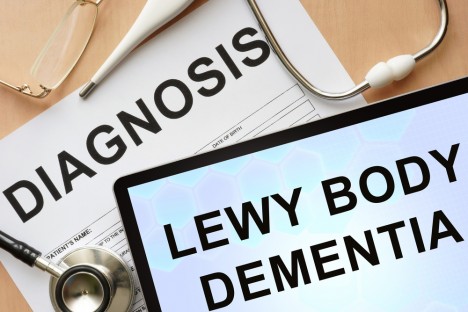For every month of the year, we scour through 1000s of published studies and list some of the hottest positive findings and negative findings in psychology and psychiatry research.
This month, no main theme emerged, however the good and the bad relating to four main subjects were repeated throughout the top 10 – empathy and compassion, anxiety, stereotyping and racism, and addiction.
BEST: Protecting a Few Students from Negative Stereotypes Benefits Entire Classroom
Findings, published in Psychological Science, that a very simple classroom intervention not only insulated African American students students from negative stereotypes about their racial group and thereby boosted their grades, it also improved other low-performing students of all ethnicities who did not participate in the intervention from simply being in classrooms with those who received the intervention.
The intervention was a simple writing prompt that instructed students to write about their most important values, such as friends or artistic ability. Although already high-performing students did not get a boost in grades, as with all students, they benefited from an improved classroom environment.
BEST: Being Anxious Could Be Good For You – In a Crisis
Previously, research has indicated that anxiety makes us oversensitive to threat signals, which was theorized to be due to impaired detection of threats in the brain. However, a new study published in eLife shows that the difference has a useful purpose. It seems that when viewing faces, non-clinical anxiety shifts the neural ‘coding’ of a potential threat from sensory circuits that simply help us to recognize faces, to motor circuits that prime us for action. The researchers note that it would be interesting to determine whether the same is true for people with anxiety scores in the clinical range.
BEST: Empathy With Strangers Can Be Learned
Conflicts between people from different nationalities and cultures often stem from a lack of empathy or compassion for ‘the stranger’. Researchers simulated positive experiences between members from different groups, where instead of receiving a painful shock on the back of the band as they expected, they discovered that a member of their own or a group of strangers could pay money to spare them pain.
At the beginning of the study, a stranger being in pain triggered a weaker empathic brain activation in the participant than if a member of his or her own group was affected. Yet after only a handful of positive experiences with someone from the stranger’s group, whereby a stranger reduced their pain, this led to a significant increase in empathic brain responses if pain was inflicted on a another member of the out-group. Researchers concluded that having positive experiences with one stranger from a group of ‘outsiders’ transfers increased empathy for other members of the same out-group.
BEST: Psychotherapies Have Long-Term Benefit For Irritable Bowel Syndrome Sufferers
The first study to look at the long-term effects of psychotherapies, including cognitive therapies, relaxation, and hypnosis, on individuals with irritable bowel syndrome (a chronic and intermittent condition for which there is no good medical treatment for at present), produced some very promising results. A meta-analysis of 41 clinical trials from a number of different countries containing more than 2,200 patients led to the conclusion that the moderate reduction of symptoms that psychological therapies confer in the short-term continue over the long-term.
Importantly, there was no significant difference in the effectiveness of different types of psychotherapy, and the length of the treatment (the number of sessions) didn’t matter either.
BEST: A Compassionate Approach to Justice Leads To More Help and Less Punishment
Witnessing an unjust exchange between a wrongdoer and a person being wronged, like watching a stranger cut in line in front of someone, stirs up certain emotions and related behaviors towards the wrongdoer and the wronged. A news series of studies published in PLoS ONE suggest that by intentionally cultivating compassion through training via compassion meditation, as opposed to receiving reappraisal training that focuses on reinterpreting one’s view to decrease negative emotions, results in people being more likely to help the victim than punish the aggressor.
The researchers involved hope this work can be used to help develop compassion training for specific populations that care for those who are suffering, like health care professionals.
WORST: Anxiety Alone Significantly Raises Risk for Dementia
An examination of 28 years of data from the Swedish Adoption Twin Study of Aging concluded that people who experienced high anxiety at any time in their lives had a 48 percent higher risk of developing dementia compared to those who had not. Although other studies have made similar links, none were so robust or found that the anxiety-dementia link was independent of the role of depression as a risk factor.
It is important to note that participants had self-reported their various levels of anxiety and may or may not have been clinically diagnosed with an anxiety disorder.
WORST: Solitary Predrinking Mediates The Effect Of Social Anxiety On Alcohol-Related Problems
Predrinking before the party has started is a common occurrence in undergraduates at university and college. While in part this is due to saving money, evidence suggests that some students predrink to cope with social anxiety. In a self-report assessment of almost 300 undergraduates, social anxiety was a positive predictor of solitary predrinking (i.e. getting the party started on your own), which in turn predicted elevated alcohol-related problems. However, those with social anxiety were less likely to engage in social predrinking, which was shown to be a protective act that reduces risk for alcohol use and related problems.
WORST: Time-Based But Not Event-Based Prospective Memory Remains Impaired One Year After The Onset Of Schizophrenia
Prospective memory (PM) is a form of memory that involves remembering you intend or have planned to do something at some future point in time, which has consistently shown to be impaired in people with schizophrenia. In the first longitudinal study to investigated the persistence of PM deficits, 58 individuals with first-episode schizophrenia (and healthy controls) had PM functions and clinical schizophrenia symptoms measured at baseline, and at the sixth and twelfth month mark. Interestingly, while those with schizophrenia showed a gradual improvement in both time- and event-based PM, compared to event-based PM, deficit in time-based PM persisted and was relatively stable. This points to time-based PM deficits in particular being a potential marker for schizophrenia.
WORST: Meta-Analysis Questions Use of Nalmefene In Treatment Of Alcohol Dependence
Nalmefene is an opiate-based drug that is used primarily in the management of alcohol dependence. However, recent meta-analysis research suggest this use may be misplaced. Meta-analysis of five RCTs collectively involving 2567 participants found no differences between participants taking nalmefene versus those taking placebo in regards to mortality after 6 months of treatment, quality of life at 6 months, or mental health.
While participants taking nalmefene had fewer heavy drinking days at 6 months of treatment than participants taking placebo, and their total alcohol consumption at 6 months was lower, secondary analyses suggested these differences may have been caused in part by attrition bias. The key conclusion is that more trials are needed, and the results call into question the current regulatory approval of nalmefene for management of alcoholism.
WORST: Some Ethnic Groups Hit Harder By Different Kinds Of Racial Microagression Than Others
Racial microaggressions are everyday subtle or ambiguous racially related insults, slights, mistreatment, or invalidation that may negatively impact the health and well-being of people of color in the United States. Two Chicago-based researchers have now developed and tested the Racial Microaggressions Scale distress subscales to aid health professionals in assessing the distress elicited by six different types of microaggressions.
In this initial proof of principle study researchers found that Asian Americans reported comparatively lower distress and that Latinos reported comparatively higher distress in response to Foreigner, Low-Achieving, Invisibility, and Environmental microaggressions. Whereas African Americans reported higher distress than the other groups in response to Environmental microaggressions, which are derogatory messages conveyed by the environment, such as there being a lack of people of color in a workplace or educational setting, as well as negative messages, like racial slurs, appearing in physical space.
REFERENCES
classroom intervention: doi: 10.1177/0956797615614591
Being anxious a good thing: http://dx.doi.org/10.7554/eLife.10274
learning empathy: doi: 10.1073/pnas.1514539112
IBS: DOI: http://dx.doi.org/10.1016/j.cgh.2015.11.020
Compassionate justice: DOI: 10.1371/journal.pone.0143794
Anxiety-Dementia: DOI: http://dx.doi.org/10.1016/j.jalz.2015.09.008
Solitary drinking: PMID:26741728
Schizophrenia: PMID:26404040
meta-analysis:DOI: 10.1371/journal.pmed.1001924
Microaggression: PMID:25237154
Further Reading
Open all references in tabs: [1 - 4]



